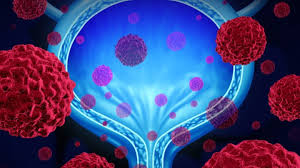25 March 2025 | Tuesday | Reports

Picture Courtesy | Public Domain
CG Oncology, Inc. (NASDAQ: CGON), a late-stage clinical biopharmaceutical company focused on developing and commercializing a potential backbone bladder-sparing therapeutic for patients with bladder cancer announced that 83 out of 110 patients (75.5%) achieved a complete response (CR) at any time in a Phase 3 study of cretostimogene monotherapy for high-risk BCG-unresponsive non-muscle invasive bladder cancer with carcinoma in situ (CIS). As of the data cutoff of January 20, 2025, 46% of patients were in CR at 12 months, with 30 confirmed responses at 24 months, with the data continuing to mature. The median duration of response (DoR) has not been reached but exceeds 28 months. These data from BOND-003 Cohort C were presented today as a late-breaking abstract at the 40th Annual European Association of Urology (EAU) Congress taking place in Madrid, Spain.
“Cretostimogene’s strong safety and efficacy profile, combined with its best-in-class durability, address an unmet need for my non-muscle invasive bladder cancer patients,” said Trinity J. Bivalacqua, M.D., Professor of Urology and Oncology at the Perelman Center for Advanced Medicine, University of Pennsylvania. “Now with the new translational data indicating that post-treatment close contact precautions are unnecessary, I am confident that cretostimogene will represent a breakthrough in bladder cancer treatment, if approved by the FDA.”
Translational data shared at the EAU Congress showed the level of cretostimogene peaked immediately after instillation, which was sustained locally for 4-5 days. Furthermore, intravesical delivery of cretostimogene reduces anti-drug antibody neutralization, thereby preserving therapeutic efficacy. There was no systemic exposure, with cretostimogene levels remaining below the limit of detection, providing evidence that post cretostimogene treatment close contact precautions are not needed. This information supports the current dosing schedule.
There were no Grade 3 or greater treatment-related adverse events (TRAEs) or deaths reported. Patients who experienced TRAEs of any grade had a median resolution time of one day. No treatment-related discontinuation of cretostimogene was observed. 97.3% of patients completed all expected treatments, demonstrating favorable patient adherence and compliance. The most common TRAEs (≥10%) were bladder spasm, pollakiuria, micturition urgency, dysuria, and hematuria.
“We are highly encouraged by the latest BOND-003 results, the largest study to date in BCG-unresponsive NMIBC with CIS patients, and cretostimogene’s potential to significantly impact the future of bladder cancer care,” said Ambaw Bellete, President & Chief Operating Officer, CG Oncology. “We are grateful to the patients and providers who participated in our study, advancing research and offering hope to those seeking bladder-sparing options.”
© 2026 Biopharma Boardroom. All Rights Reserved.